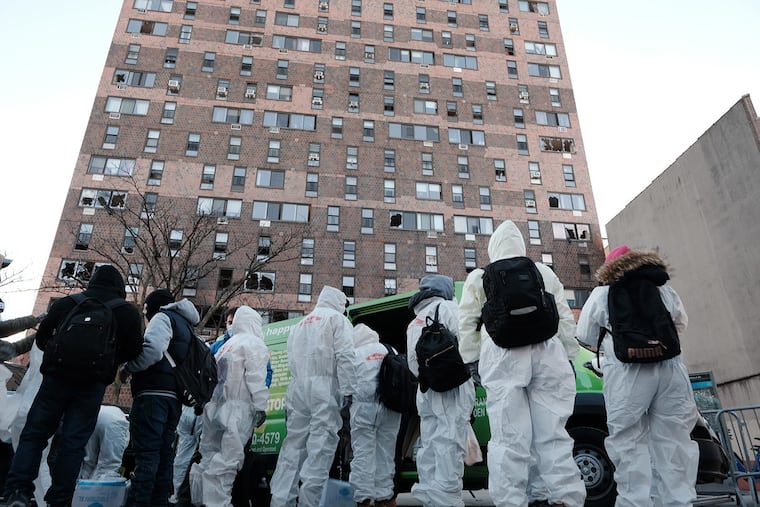How physicians can help keep the lights on for Philadelphia’s poorest families | Expert Opinion
Come April 1, many Philadelphia families will be facing a devastating reality: a utility shutoff.

Come April 1, many Philadelphia families will be facing a devastating reality: a utility shutoff.
Loss of heat, power, or water to a household is a public health threat impacting families all over our region. Recent data reveals that 35% of families with children in the mid-Atlantic were at risk of losing access to utility services. That number is likely higher in Philadelphia, the poorest of our nation’s large cities.
As a legal aid lawyer and pediatrician, we have seen firsthand the snowball effect of a lack of utility access: destabilized home lives as families rely on friends and neighbors for hot showers and cooking, evictions when rent obligations are tied up in utilities, and even child welfare involvement that threatens parental rights just because of an unpaid household bill. We must now focus on how we can assist the most vulnerable in our population, before more Philadelphia families are thrust into crisis.
Pennsylvania recognizes that turning off heat in the winter is inhumane, and families with current access are protected until April 1, 2022 under a Winter Moratorium. But shutoffs will commence as soon as it is lifted. Many Philadelphia children are already living without adequate or any heat. In these situations, families often turn to unsafe heating practices including use of a gas oven or multiple space heaters (the culprit of the deadly Bronx fire this winter).
The good news is that there exists a readily-available stopgap solution: medical certificates. Medical certificates are an underutilized resource to combat energy insecurity in Philadelphia. They can be used to prevent a shutoff or reinstate a terminated utility for 30 days when a customer’s medical condition would be exacerbated by loss of access. This exemption is not a “free pass” for customers in arrears. During the 30-day period, customers continue to pay the balance and are afforded the opportunity to put supports in place – a payment arrangement, a government or foundation grant, or a loan from a family member or church – to continue service.
Under the law, medical necessity is determined by physicians’ professional judgment. Many physicians will only sign a certificate when a patient relies on medical devices that require electricity. However, our knowledge of how utility loss impacts health argues for the adoption of a much broader scope. Asthma, a disease affecting 21% of Philadelphia children, is known to be exacerbated by extreme cold. Many routinely-prescribed medications, like amoxicillin to treat an ear infection, are most safely stored in the refrigerator. All children under one year old rely on foods that require tight temperature control. The American Academy of Pediatrics recommends preparation of formula with boiled or purified water, while the CDC advises that breast milk be kept refrigerated or frozen for safe storage. Beyond this, consider the monumental rise of mental health conditions in our youth, and how utility shutoffs may negatively impact children who are already struggling.
To be sure, medical certificates should only be used when a bona fide medical condition exists. But public health studies have shown that families most vulnerable to utility shutoffs have higher prevalence of asthma and depression, as well as the highest mortality rates for infants. An ounce of prevention from medical certificates yields cost savings and health benefits, without further taxing our overburdened healthcare infrastructure. Until more durable support exists for our most vulnerable families, physicians should feel empowered to exercise their discretion, think carefully about the implications, and sign medical certificates liberally to protect their families. Keeping the lights and heat on for children in Philadelphia is a legacy we can, and should, proudly defend.
Samuel Belfer, MD PhD is a pediatric resident physician in Philadelphia.
Rachel Mark, Esq. is a staff attorney at HELP:MLP in Philadelphia.
The Philadelphia Inquirer is one of more than 20 news organizations producing Broke in Philly, a collaborative reporting project on solutions to poverty and the city’s push toward economic justice. See all of our reporting at brokeinphilly.org.